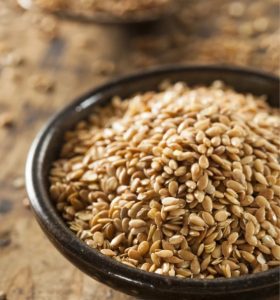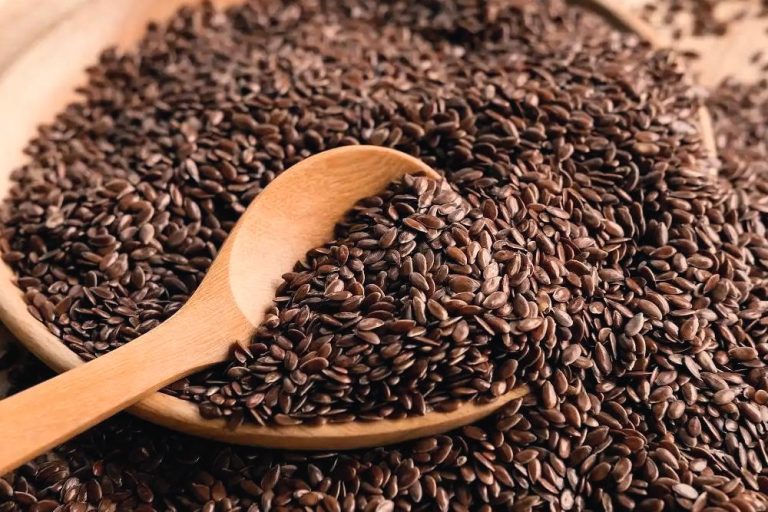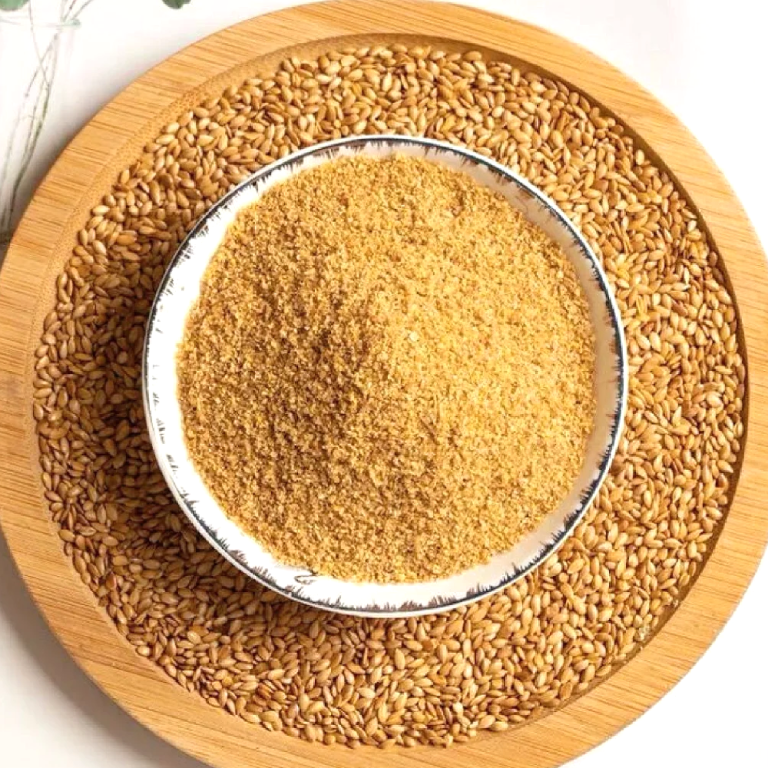In the world of gut health, prebiotics and probiotics are often mentioned in the same breath, but they play distinct roles in maintaining a healthy digestive system. You may have heard about flaxseed being a superfood, but Is Flaxseed a Prebiotic? Now, we’ll explore what prebiotics are, what flaxseed is, and how flaxseed compares to other common prebiotics. Plus, we’ll dive into the best ways to incorporate flaxseed into your diet based on your specific needs, with nutritional data to support the comparison.
What Are Prebiotics?
Prebiotics are naturally occurring substances that nourish beneficial bacteria (probiotics) in the gut. They are typically fiber-rich compounds that humans can’t digest, but that are used as fuel by the good bacteria in our digestive system. The consumption of prebiotics promotes a healthy gut microbiome and aids digestion, contributing to overall well-being.
Key Functions of Prebiotics:
Promote the growth of beneficial gut bacteria.
Improve digestive health.
Enhance immune system function.
Reduce the risk of certain diseases, like colon cancer.
Help regulate blood sugar levels.
What Is Flaxseed?
Flaxseed is a small, nutrient-dense seed derived from the flax plant. It’s known for its rich content of healthy fats, fiber, and plant compounds like lignans. Flaxseed is commonly used in various forms, such as whole seeds, ground seeds, flaxseed oil, and flaxseed powder, in a variety of culinary applications and dietary supplements.
Flaxseed Products:
Whole Flaxseeds: Contain fiber and lignans; great for adding texture to dishes.
Ground Flaxseed: Easier to digest and more bioavailable compared to whole seeds.
Flaxseed Oil: Rich in omega-3 fatty acids; often used in cooking or as a supplement.
Flaxseed Powder: Finely ground flaxseed, often used in smoothies or as a baking ingredient.
Comparing Prebiotics: The Most Common Types
Various types of prebiotics contribute to gut health. Here’s a quick comparison of some of the most common prebiotics:
| Prebiotic | Source | Main Function |
|---|---|---|
| Inulin | Chicory root, Jerusalem artichoke | Promotes gut bacteria growth, improves digestion |
| Fructooligosaccharides (FOS) | Bananas, onions, garlic | Supports healthy gut microbiota, boosts immune health |
| Galactooligosaccharides (GOS) | Legumes, beans | Helps with digestion and absorption of nutrients |
| Resistant Starch | Cooked and cooled potatoes, green bananas | Helps reduce blood sugar spikes, improves gut health |
| Flaxseed | Flax plant | Rich in fiber and lignans; promotes gut health and digestion |
Nutritional Comparison: Flaxseed vs. Other Prebiotics
Let’s take a look at the nutritional content of flaxseed compared to other popular prebiotics to better understand how they support gut health.
Nutritional Data (Per 100g):
| Nutrient | Flaxseed | Inulin | FOS | Resistant Starch |
|---|---|---|---|---|
| Calories | 534 kcal | 150 kcal | 160 kcal | 60 kcal |
| Fiber | 27.3g | 88.0g | 70.0g | 5.0g |
| Soluble Fiber | 7.0g | 88.0g | 70.0g | 3.0g |
| Insoluble Fiber | 20.3g | 0g | 0g | 2.0g |
| Omega-3 (ALA) | 22.8g | 0g | 0g | 0g |
| Lignans | 85-140mg | 0g | 0g | 0g |
| Protein | 18.3g | 0g | 0g | 1.5g |
| Carbohydrates | 29.0g | 9.0g | 9.0g | 15.0g |
| Fat | 42.2g | 0g | 0g | 0g |
Source for Data:
Flaxseed data: National Nutrient Database for Standard Reference, USDA (2016).
Inulin data: Esposito, F. et al. (2019). “Inulin and its role in human health.” Nutrition Journal.
FOS data: Parnell, J. A., & Reimer, R. A. (2014). “Fructooligosaccharides and gut health: Prebiotic effects in humans.” Critical Reviews in Food Science and Nutrition.
Resistant starch data: Slavin, J. L. (2013). “Dietary fiber and body weight.” Nutrition.
Flaxseed: Unique Features and Functions
Flaxseed stands out as a prebiotic due to its rich content of both soluble and insoluble fibers, as well as lignans. These properties make flaxseed unique in its support of gut health and digestion. Here are the key characteristics of flaxseed:
Key Features of Flaxseed:
High Fiber Content: Flaxseed is an excellent source of both soluble and insoluble fiber, which helps with digestion and promotes the growth of beneficial gut bacteria.
Lignans: Flaxseed is one of the richest sources of lignans, which have antioxidant and anti-inflammatory properties. Lignans can support gut health by balancing gut flora and supporting the immune system.
Omega-3 Fatty Acids: Flaxseed is rich in ALA (alpha-linolenic acid), a plant-based omega-3 fatty acid that has anti-inflammatory benefits and supports overall health.
Digestive Health: Flaxseed can help relieve constipation, support regular bowel movements, and reduce bloating, making it a great addition to a gut-healthy diet.
Flaxseed Products:
Whole Flaxseeds: Provide both soluble and insoluble fiber, beneficial for digestive health.
Ground Flaxseed: Easier to digest and packed with omega-3 fatty acids, fiber, and lignans.
Flaxseed Oil: Rich in omega-3s, ideal for reducing inflammation.
Flaxseed Powder: Offers all the benefits of flaxseed in a versatile, easy-to-use form.
Comparing Flaxseed with Other Prebiotics
While many prebiotics are beneficial for gut health, flaxseed has unique features that set it apart from other common prebiotics. Here’s a quick comparison of flaxseed with other prebiotics based on their benefits:
| Feature | Flaxseed | Inulin | FOS | Resistant Starch |
|---|---|---|---|---|
| Fiber Content | High (soluble and insoluble fiber) | Moderate (soluble fiber) | Moderate (soluble fiber) | High (insoluble fiber) |
| Lignans (Antioxidants) | Rich in lignans, supports gut microbiome and immune health | Absent | Absent | Absent |
| Omega-3 Fatty Acids | High in ALA (omega-3) | Absent | Absent | Absent |
| Digestive Health | Improves digestion, relieves constipation | Improves digestion | Promotes gut microbiota | Improves digestion and reduces blood sugar spikes |
| Ease of Use | Easy to incorporate into diets, available in multiple forms | Mostly used in supplements or processed foods | Found in many fruits and vegetables | Commonly found in cooled potatoes and bananas |
Best Ways to Use Flaxseed and Which Products to Choose
When it comes to using flaxseed in your diet, there are various options to consider depending on your personal needs and preferences. Here’s a quick breakdown of the best ways to consume flaxseed based on specific goals:
Recommended Flaxseed Products:
Ground Flaxseed: Best for general digestive health and ease of digestion. Ideal for individuals looking to improve bowel regularity or reduce bloating. Ground flaxseed can be added to smoothies, oatmeal, or baked goods.
Flaxseed Oil: Best for those seeking an omega-3 boost. Ideal for people with inflammatory conditions or those looking to improve cardiovascular health. Flaxseed oil can be used in salads, dressings, or as a supplement.
Flaxseed Powder: Best for individuals with specific dietary preferences. Flaxseed powder is easy to mix into drinks or use in baking. Perfect for people who want a quick, convenient form of flaxseed to support overall health.
Who Should Consume Flaxseed:
People with Digestive Issues: Flaxseed can help relieve constipation and improve bowel movements.
Individuals with Inflammatory Conditions: The omega-3s in flaxseed oil can help reduce inflammation and support heart health.
Those Looking to Support Gut Health: Flaxseed is an excellent source of both soluble and insoluble fiber, supporting the growth of beneficial gut bacteria.
Is Flaxseed a Prebiotic?
While flaxseed is not a typical prebiotic like inulin or FOS, it does possess unique properties that make it a powerful tool for supporting gut health. Its rich fiber content, antioxidant-rich lignans, and omega-3 fatty acids set it apart from other prebiotics. Incorporating flaxseed into your diet in forms such as ground seeds, flaxseed oil, or flaxseed powder can be a great way to boost digestion, support gut health, and reduce inflammation.
In conclusion, flaxseed stands out not only for its prebiotic properties but also for its overall nutritional benefits. Whether you’re looking to improve your digestion, reduce inflammation, or simply enjoy a healthier diet, flaxseed is a versatile and powerful choice.







